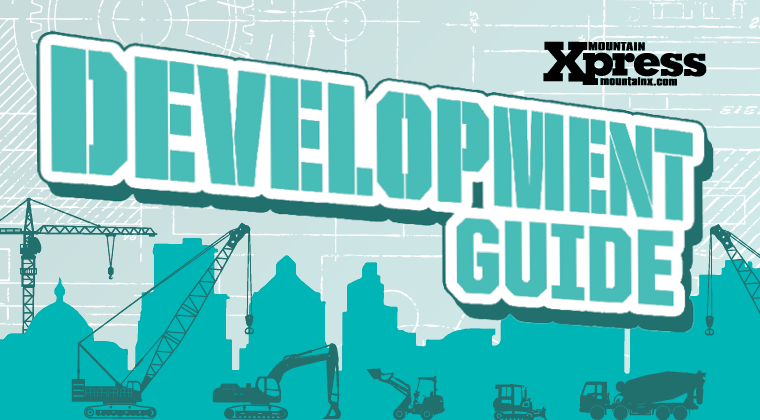People who go to a meeting of the Buncombe County Board of Adjustment might not realize the bland room where the board gathers is a first cousin to a court of law.
The board decides whether many larger developments proposed in unincorporated areas of the county can proceed. Projects that come before it typically include apartment complexes, groups of vacation rental homes and larger utility substations — all of which county rules say are allowed in a zoning district only if they meet specific requirements.
State law says the county Board of Adjustment and similar boards around the state must consider these applications in “quasi-judicial” proceedings. The same rules of evidence apply as in a regular court. Witnesses are sworn in, and board members can’t consider communication from the public before the meeting on the issue to be decided. The board can only hear from expert witnesses and people who allege they may suffer what the law calls “special damages” from a project, not just anyone who wants to speak. Hearings may involve lawyers arguing for and against a project.
The proceedings are different from those in a regular court in that they are typically less formal and board members serve as both judge and jury, deciding whether a development can proceed. (They don’t wear black robes, either.)
The board decides, in a process that’s supposed to be objective and predictable, whether an applicant has met certain standards set out in state law and the county’s zoning ordinance. Considerations include whether a proposal will harm nearby property values, create “noise, vibration, odor or glare” that will hurt neighbors and has adequate provisions to handle traffic.
The law says only people who might suffer damages from a development that are distinct from those incurred by the community at large can mount a case opposing a project. That means someone who thinks too many apartment complexes are popping up in Enka might not get to testify about a specific proposed complex, while someone who says the development would reduce the value of their home near the project site would.
Some North Carolina local governments, including Asheville, have changed their ordinances in recent years to avoid quasi-judicial hearings because applicants often seek rezonings with conditions. Asheville City Council approves many larger projects through conditional zoning, in which the applicant and government officials can negotiate terms with input from both neighbors and the broader community.
However, Asheville’s Historic Resources Commission and city Board of Adjustment, which only hears appeals from staff decisions and requests for zoning exceptions, do employ quasi-judicial procedures.



Before you comment
The comments section is here to provide a platform for civil dialogue on the issues we face together as a local community. Xpress is committed to offering this platform for all voices, but when the tone of the discussion gets nasty or strays off topic, we believe many people choose not to participate. Xpress editors are determined to moderate comments to ensure a constructive interchange is maintained. All comments judged not to be in keeping with the spirit of civil discourse will be removed and repeat violators will be banned. See here for our terms of service. Thank you for being part of this effort to promote respectful discussion.